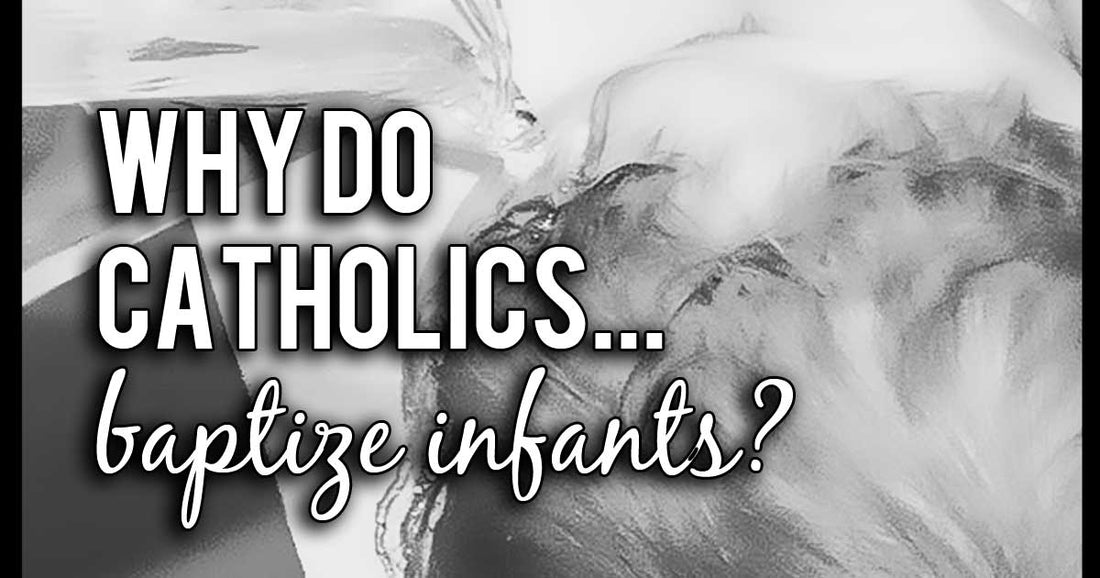
Why Do Catholics Practice Infant Baptism?
Share
When my husband and I first started discussing marriage and children, there were a lot of religious questions. At the time, he was non-denominational and I was Catholic. I expected that our children would be baptized right away, as I had been. He thought they should have the choice to be baptized as adults… even though it was something he had never experienced. By the time he was old enough to get baptized in his church, he had already joined the Marine Corps and moved too often to develop a new faith community.
The question of infant baptism is a frequent discussion between Catholics and non-Catholics. Other faiths wonder what can possibly be gained from baptizing an infant, who is far too young to speak or even remember the event. They argue that such an important moment of faith should happen when a child is older and able to make a decision for themselves.
However, the Church tradition of infant baptism is rooted in the practices of the Apostles. Following Pentecost, whenever “whole households” were baptized into the faith on the same day, it is assumed that included children and babies. (See Acts of the Apostles 16:15, Acts 18:8, and 1 Corinthians 1:16). There is also documentation of infant baptism from the 2nd century onward.
Why is infant baptism important to Catholics? We believe that all people are born with the stain of original sin. Baptism is the sacrament that washes that away and allows a person to live in a state of grace. The sooner that can happen, the better. The Catechism of the Catholic Church explains, “Children also have need of the new birth in Baptism to be freed from the power of darkness and brought into the realm of the freedom of the children of God, to which all men are called… The Church and the parents would deny a child the priceless gift of becoming a child of God were they not to confer Baptism shortly after birth.” (CCC 1250).
Of course, even after being baptized, a baby is not able to understand the mysteries of the faith. But to be honest, neither is a 12-year-old able to fully understand faith. Nor a 40-year-old. That’s why catechesis and instruction in the faith is expected to continue throughout the child’s life, even after being baptized. The parents and godparents should continue to play an important role throughout the child’s life. The Catechism affirms this when it says “For all the baptized, children or adults, faith must grow after Baptism” (CCC 1253). For Catholics, baptism is not the culmination of the faith journey. It is only the beginning.
That’s why infant baptism is an important Catholic practice. It is rooted in Biblical and apostolic tradition, and it demonstrates the value of sacramental grace being received at the very beginning of one’s life. There is no need for a child to wait until they are a teenager to receive God grace, if God offers it so freely from the moment they are born!
God bless,
Lizann
Contributor for the Christian Catholic Shop

Lizann is a Catholic military wife and mother who loves to share about her faith. Read more from Lizann and our other contributors on the Christian Catholic Shop blog.
FREE The Joy of the Gospel e-Book by Pope Francis. Click Here.


